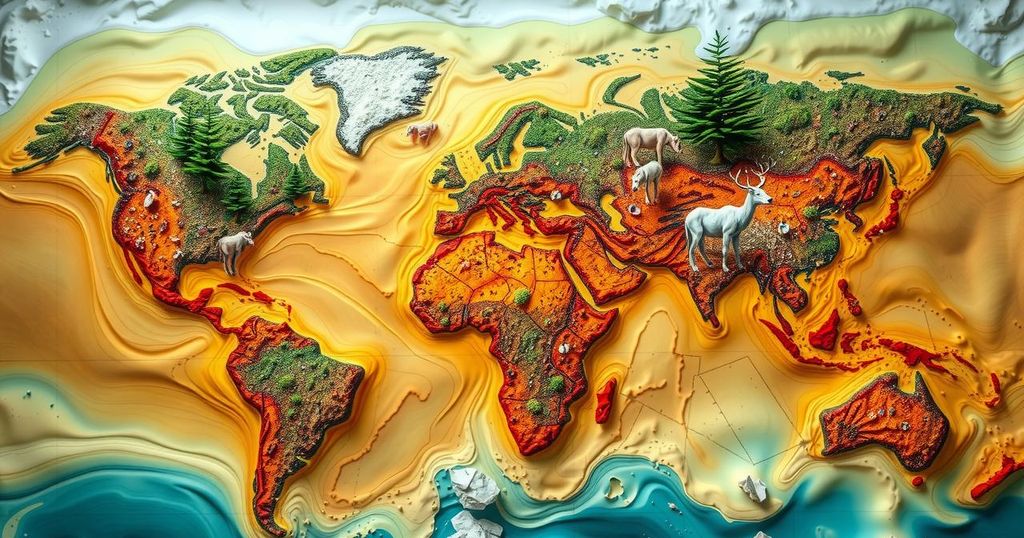A new study indicates that nearly one-third of Earth’s species could vanish by 2100 due to climate change if greenhouse gas emissions remain unchecked. Exceeding the Paris Agreement’s temperature targets would escalate extinction risks drastically, particularly for vulnerable species and biodiversity hotspots worldwide. Urgent global action is needed to curtail emissions to prevent unprecedented biodiversity loss.
A recent study published in Science reveals the alarming threat of climate change to global biodiversity, warning that one-third of the world’s species may face extinction by the year 2100 if greenhouse gas emissions remain unchecked. This research, based on over three decades of data on climate change and biodiversity, highlights the urgent need for immediate action to mitigate the impacts of rising temperatures. The study indicates that surpassing the Paris Agreement’s target of limiting global warming to 2.7°F (1.5°C) would significantly enhance extinction risks, particularly for amphibians, freshwater species, and unique ecosystems in regions such as South America, Australia, and New Zealand.
As global temperatures have already risen by approximately 1.8°F (1°C) since the onset of the Industrial Revolution, scientists warn that if current emissions trajectories continue, a troubling increase of 4.9°F (2.7°C) could severely impact biodiversity, endangering 1 in 20 species. Furthermore, in a worst-case scenario with temperatures rising by 9.7°F (5.4°C), nearly 30% of all species could be at risk of vanishing. Dr. John Doe, the lead researcher from the University of Global Studies, emphasizes the profound effects of climate change on ecosystems, noting that warmer temperatures disrupt essential species interactions and migration patterns.
This study calls for a commitment to adhere to the Paris Agreement’s guidelines to limit emissions, as failing to do so could result in the extinction of approximately 180,000 species by the end of the century. The repercussions of climate change are evident, with many species seeking cooler habitats at higher elevations or latitudes. While some may adapt to the changing environment, others will experience drastic declines or potential extinction due to habitat destruction caused by rising temperatures. The findings reinforce the crucial need for swift global action to curtail greenhouse gas emissions and safeguard biodiversity, which is vital for sustaining ecosystems and human survival.
The report highlights the critical intersection between climate change and biodiversity loss, leveraging extensive research conducted over three decades. It emphasizes how increasing global temperatures—driven by unchecked greenhouse gas emissions—pose dire risks to various species across the planet. Notably, ecosystems that are already under threat, such as those found in South America, Australia, and New Zealand, display extreme vulnerability to climate shifts. Understanding the relationship between climate change and species survival is essential for implementing effective conservation strategies and policy responses.
In conclusion, this study presents a sobering outlook on the future of biodiversity in the face of climate change, underscoring the potential loss of one-third of Earth’s species by 2100 if decisive actions are not taken. The significant risks posed by rising temperatures necessitate adherence to the Paris Agreement to mitigate emissions. The cascading effects of climate change underscore the urgency for global cooperation to preserve ecosystems essential for the survival of both human and animal populations.
Original Source: www.businesstoday.in






